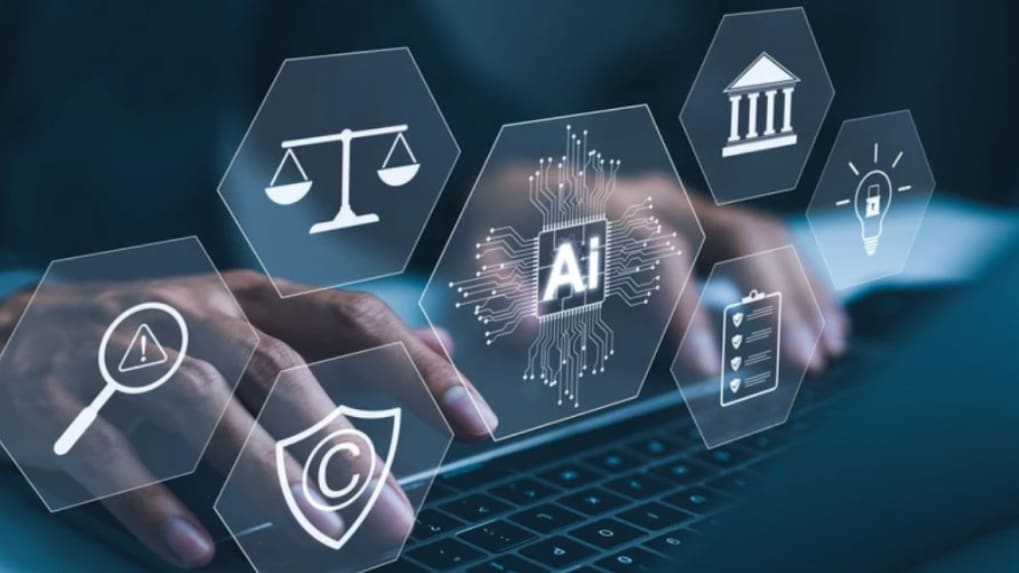Today in AI | AI could eliminate 99% jobs | Open AI to produce chip | Apple in AI race
Storyboard18 brings you the top AI news of the day.
ADVERTISEMENT
The world of Artificial Intelligence has only begun to affect human lives. In times like these, staying up-to-date with the AI world is of utmost importance. Storyboard18 brings you the top AI news of the day.
AI could eliminate 99% of jobs by 2030, warns computer science professor
Roman Yampolskiy, Professor of Computer Science at the University of Louisville, has warned that advanced artificial intelligence could make 99 per cent of people unemployed within the next five years. Speaking on the Diary of a CEO podcast hosted by Steven Bartlett, Yampolskiy said that by 2030, the rapid development of AI capabilities will pose a profound risk to both humanity and global job markets.
Yampolskiy’s stark warning comes in line with predictions made by other prominent voices in the AI field. Geoffrey Hinton, widely regarded as the “Godfather of AI” for his pioneering research, stated earlier this year that AI will “replace everybody” in white-collar roles. He also dismissed the notion that new jobs would be created to offset those losses, arguing that if AI automates nearly all tasks, there will be no meaningful work left for humans.
Similarly, in May, Anthropic CEO Dario Amodei projected that AI could eliminate half of all entry-level white-collar jobs within one to five years, driving unemployment rates up to 20 per cent.
Apple may be in talks with Google for ‘AI deal’ to power next-generation Siri
Apple is reportedly in advanced discussions with Google to integrate its Gemini artificial intelligence models into a major upgrade of Siri, in what could become one of the most high-profile collaborations in the tech sector.
The Cupertino-based company, which will unveil its iPhone 17 line-up on 9 September, is said to be exploring the use of Gemini’s large language model (LLM) to significantly enhance Siri’s conversational abilities and general knowledge, according to Bloomberg.
Under the proposed arrangement, Siri would adopt a hybrid model: Apple’s in-house systems would continue to process on-device and privacy-sensitive queries, while Gemini would be deployed for more complex or web-informed requests.
While Apple has been building its own AI models, it has also held talks with external players to accelerate its development. The company previously explored potential partnerships with Anthropic’s Claude and OpenAI’s ChatGPT as alternatives to strengthen Siri’s performance.
OpenAI to produce in-house AI chip with Broadcom in 2026
American artificial intelligence company OpenAI is set to produce its own AI chip next year in partnership with U.S. semiconductor giant Broadcom, according to a report by the Financial Times.
The chip is intended for OpenAI’s internal use rather than being sold to external customers. The company, which played a central role in commercializing generative AI capable of producing human-like responses, requires significant computing power to train and operate its systems.
Reports from last year indicated that OpenAI had been working with both Broadcom and Taiwan Semiconductor Manufacturing Co. (TSMC) to develop its first in-house chip. The company has also been incorporating AMD chips alongside Nvidia’s to address the increasing infrastructure demands of its AI operations.
In February, further reports confirmed that OpenAI was advancing its efforts to reduce dependence on Nvidia by developing its own AI silicon.
Apple enters AI search race with ‘World Knowledge Answers’
Apple is gearing up to enter the AI-driven search race. Bloomberg reported that the company will launch a new tool, internally dubbed “World Knowledge Answers”, next year. The feature marks Apple’s most ambitious attempt yet to position Siri as a true competitor to Perplexity, ChatGPT, and Google’s AI Mode.
The system, described by insiders as an “answer engine”, will integrate into Siri, Safari, and Spotlight, allowing users to query the internet and receive responses that blend text, images, video, and local insights. Apple is also planning an AI-powered summarizer to condense information into digestible, accurate takeaways, a capability that could give Siri long-awaited relevance in the generative AI era.
To power the service, Apple has struck a deal with Google to test its custom-built AI models. These models will run on Apple’s Private Cloud Compute servers, the same infrastructure already supporting Siri queries routed to ChatGPT. While Apple had previously explored a partnership with Anthropic, negotiations reportedly collapsed over a $1.5 billion annual price tag, making Google the more viable partner.

